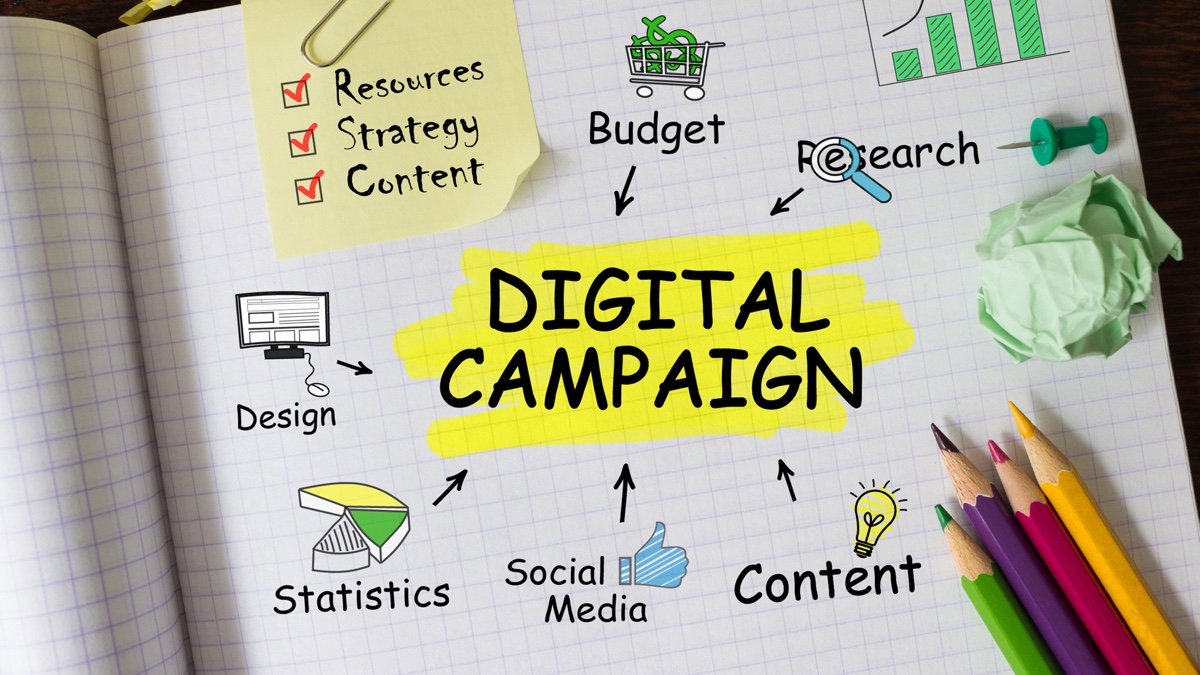The world is online now more than ever and marketers need to take advantage of the surge in online traffic, but there are a few things that need to be determined before jumping into a digital marketing campaign. In this blog, we explore the first four questions a marketer must ask themselves before starting a digital marketing campaign.
Question #1: Who is your target audience?
When marketers answer this question there are a few things to consider to identify the audience: demographics (job title, geographic location, interests and affinities), where they consume media, messaging and the problem your audience is looking to solve. Understanding your target audiences and personas, as well as where they are in the customer journey (top of funnel, mid-funnel, etc.) is the critical stepping stone prior to beginning every campaign. Without this understanding the campaign has little chance for success.
Question #2: What channel are you planning to use?
Once the target audience is determined and their stages of the customer journey identified, you must find which channel(s) the target audience uses the most and decide if the initiative will benefit most from utilizing organic social media, paid social media, cost-per-click (CPC) or a combination.
Organic social media may be ideal if the company has a diverse following; this allows the company to promote content and general brand awareness. Organic posts are surfaced depending on engagements; more activity on a post drives the channel algorithms for increased exposure.
If the company does not have a large following, we suggest going for a paid social media campaign; these are beneficial because this allows the company to determine where the targeted audience is specifically located. For more information about starting a paid social campaign check out our blog “5 Critical Considerations Before Starting a Paid Social Campaign.” When starting out a paid social initiative, we recommend focusing on one or two social media channels to ensure you can manage the tracking and analytics of each campaign, ad group and individual ads. As your campaigns evolve (through your tireless monitoring and revisioning) and increase in effectiveness, you can then expand your reach. Paid social campaigns are measured in two ways: click through rates and conversions to landing pages. (One way to boost engagement or click through rates and conversions? Use motion graphics or videos versus still photos.)
Question #3: What is your budget?
The budget is allocated in two ways: the campaign fee for the channel and the professional services. The more budget that is allocated to the campaign, the more likely the post will be viewed by a larger audience. However it may not be the ideal audience, so straight impressions are not a good indicator of campaign value.
As I mentioned earlier, we find that companies with limited budget will see a bigger return on investment when focusing the budget on one channel rather than spreading it too thin. The recommended minimum campaign budget starts at $500, but with more people online during the pandemic bid costs are rising.
Question #4: What is your narrative arc?
We find that our clients engage in a two prong approach: organic and paid social campaigns. Organic social posts amplify the company’s brand identity and paid social ads promote the availability of the product while driving audiences to “like” the page or create a conversion to fill top-of-funnel leads. The strategic goal of the company impacts the approach of the campaign. Think of a narrative arc as a movie; if your company is just starting out, the first phase of the campaign should be like the first scene of a movie — setting the stage, establishing the story and building the intensity — then, as the campaign goes on, the posts should establish a long view of marketing and leave the audience wanting to learn more.
Some final thoughts: When planning a digital marketing campaign, determine how to measure the campaign’s effectiveness through metrics and analytics. Additionally, identify the goal of each phase of campaign, and throughout the campaign, check the measurements regularly. This will help inform if your campaign is effective and reaching the right audience. We have found that most of the platform recommendation engines provide valuable insight and can improve the performance of your campaigns, however that is not an absolute.
The Digital Marketing team at W2 Communications is ready to help your company launch effective campaigns that reach your target audiences and fill your sales funnel. If you want to learn more, fill out the form below!




